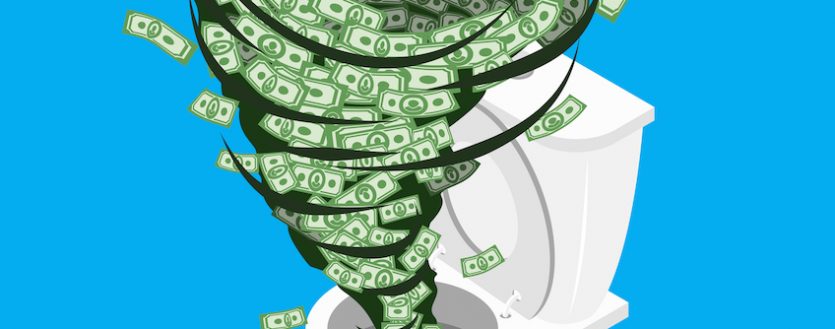
Distorted Morality
When I describe the points hobby with people I know and meet, a common response often arises.
“Oh, so you’re scamming the system!”
When I initially heard that, I was confused and maybe even a little insulted. However, after some thought, I realized that the people making those remarks didn’t understand the system that I participated in, the companies that created and still control that system, and the work that I and others like me put into it in order to travel more, better, and for less money.
The loyalty rewards system that’s intertwined with travel was planned and created by some of the largest, most powerful companies in the travel and banking worlds. This system includes large hotel conglomerates, airlines, other travel companies, and banks. These companies have created a vast interconnected network of loyalty programs that entice, capture, and retain customers while adding to their brand and bottom lines. They created the program rules, restrictions, bonus structures, and even flaws in the system.
I think it’s implied that when people ask me about scamming the travel rewards system, there is an unspoken accusation of (personal) morality that’s been broken via trying to accumulate points in the manner that I and others like me do. Certainly I think there are aspects of morality involved in the points hobby. Those range from how points are collected, to the personal interactions with the people and companies that I deal with on a regular basis. I have no problem with that train of thought.
But what’s almost always not considered by people making those accusations are aspects of morality and fairness from the large companies involved in travel hacking.
Paying for Nothing
A guy I work with came up to me a few weeks ago and started asking me some loyalty rewards oriented questions. He knew I had a passion for points, and didn’t hesitate getting my take on his situation.
My coworker has 2 credit cards. One of this is a non rewards earning Visa card with no annual fee and an Amex Premier Rewards Gold (PRG) card. The PRG has been in his wallet now for over 18 years (and other credit card for 12 years), and during that time he’s paid $195 each year in annual fees to have the card. He wasn’t sure if he was earning any rewards for the PRG, was receiving an abundance of credit card offers through the mail, and wasn’t sure what his next move should be. Since he didn’t login to his online account at all, I asked him to call Amex and ask if he had a reward balance, and then to speak with me after the call
He made the call and got some bad news right away.
Even though he’s paid Amex annual fees for the past 18 years for the PGR, he signed up for the card at a time when rewards points were not offered with it!
The annual fee on the card changed in 2015, so depending on when he signed and closed the card, my coworker has probably paid $175 x 15 years and $195 x 3 years for a total of $3,210 out of pocket in annual fee costs for….nothing! Zero, nada, zip, zilch.
Next Steps
After the bad news came my way, I looked up the current PRG offer for new applicants.
The current offer is for 50k Membership Rewards after meeting the $2k minimum spend in 3 months, and the $195 annual fee is waived for the first year. Seeing that, I asked my coworker to call Amex and negotiate. I outlined a speech for him with this theme:
I’ve been a loyal member with Amex for nearly 20 years, making all payments on time, putting large spend on the card, and also paying the annual fee every year, but at the same time accumulating no rewards.
I told him to ask Amex to match the current sign up offer for new customers, including waiving the $195 annual fee for a year. If Amex refused, try and downgrade to a no annual fee card option, and if all else fails, to simply cancel the card and move on. Amex offered him 40k points to keep the card, but said they couldn’t waive the annual fee, even after escalating the call to a supervisor.
Emotion may have got the best of him, and before negotiating further, he cancelled the card.
Conclusion
Amex didn’t blink at having my coworker pay thousands of dollars for their credit card without earning anything for his spend. He’s literally spent hundreds of thousands of dollars on that card too. I think what happened to my friend is bad. It’s bad on his part, because he wasted money on annual fees and was ignorant of the credit card products in his wallet. However, Amex wasn’t exactly wearing a halo either. It bothers me that a credit card company would charge annual fees on a product and not offer substantial benefits, not to mention the fact that the Amex offered less than the public offer to keep him as a customer. In the end, he did waive goodbye to Amex and is headed down the Chase path.
It may be unfair, unethical or even immoral for Amex to operate in the way that it did, but it is legal, and so is travel hacking. And to me, that’s the beauty of the travel rewards free market. Amex didn’t have any misgivings about doing what it did to my coworker, and I don’t see any issue with travel hackers earning big rewards from banks either.

